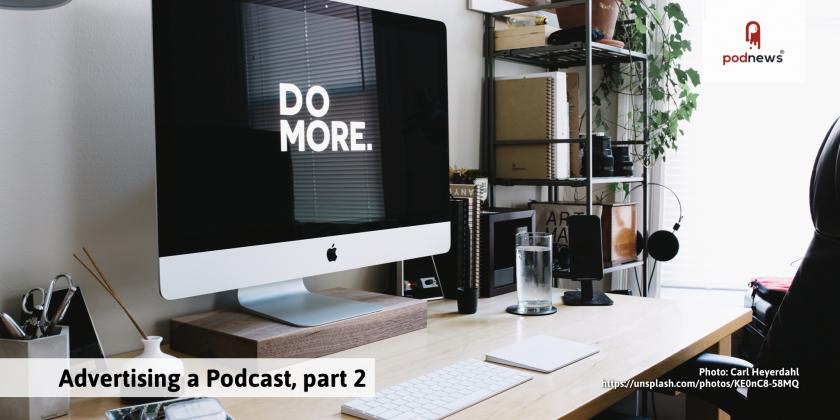
Advertising A Podcast, Part 2

This article is at least a year old
A Podnews exclusive series by Sean Howard of Fable and Folly Productions, the creators of Alba Salix, Royal Physician and the improvised sci-fi dark comedy, Civilized.
Buying Social and Search Ads
I spent the last couple of months running a series of campaigns on Facebook, Twitter and Google Adwords. I wanted to understand the potential costs to acquire a listener using paid online ads.
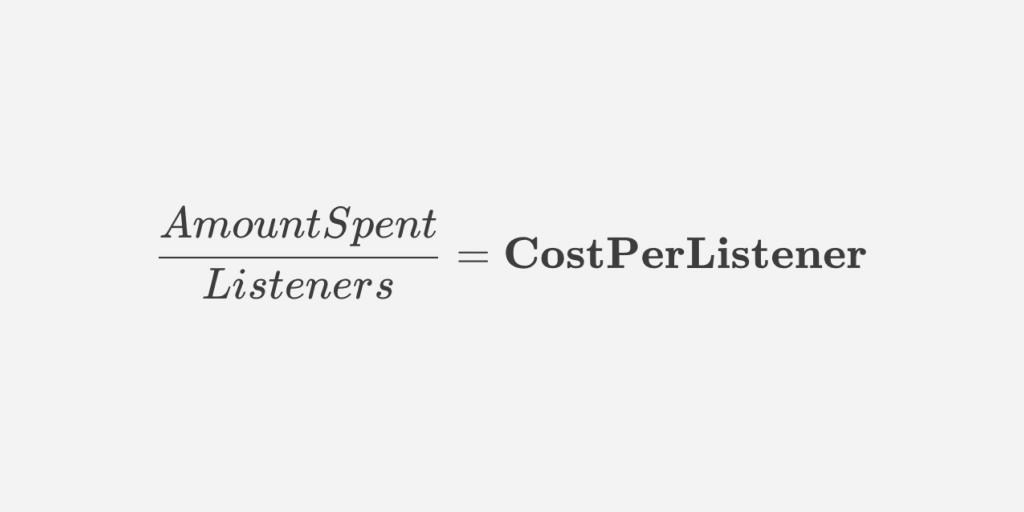
If we are spending money and time to generate listeners, it’s important to actually measure how many listeners we generated.
When I send my partner to the store to buy cookies, I want to know how many cookies he purchased and even what kind of cookie. But online platforms that sell advertising want to tell us everything but these two facts. We have to keep them honest.
In this article, I’m going to share two tools I truly adore and am using to track the number of listeners I am creating through paid (and unpaid) advertising efforts.
| RadioPublic Podsite | Chartable Smartlinks |
|---|---|
| $12/month (annually) +$5/month podsite | Free version available I was given access to a paid account |
| Creates Google Analytics events for subscribe link, play an episode and more. | Compares the IP address of people who click on your ad to people who play an episode |
| Requires some experience with Google Analytics and Campaign URLs | Requires a prefix be added by your podcast host |
| https://podcasters.radiopublic.com/ | https://chartable.com/ |
| Works with all paid platforms | Requires paid account for Google Adwords usage |
As an analytics geek, I love the deeper insights available with the RadioPublic podsite events. As a podcaster without a lot of time on my hands, I love the ease-of-use of Chartable Smartlinks.
For a primer on how to use Chartable Smartlinks to track the conversion to listeners, see Which social channels have the highest podcast download conversion rates? by Dan Misener.
Want to become a Google Analytics ninja and track a ton of events from your RadioPublic podsite? Check out An introduction to Google Analytics events found in RadioPublic Podsites from Matt MacDonald.
Why Measuring Listeners Matters
An article recently went around outlining how to buy ads on Facebook for a podcast. It had a ton of great advice on how to target ads, retarget website visitors and all around build a “successful” Facebook ad campaign. Except, it didn’t once say how many listeners were acquired in any of the examples given.
Nor did it suggest that we identify the cost to acquire a listener or what I call cost per listener (CPL).
If we aren’t tracking what we spend against how many listeners we generate, we are pouring money down the drain, guaranteed. Let me illustrate with a recent campaign.
Paid Twitter Video Ad
I spent $50 on a sixty second Twitter video ad. Three days later, Twitter had shown my ad over 3,600 times and 35 people had clicked through to my podcast.
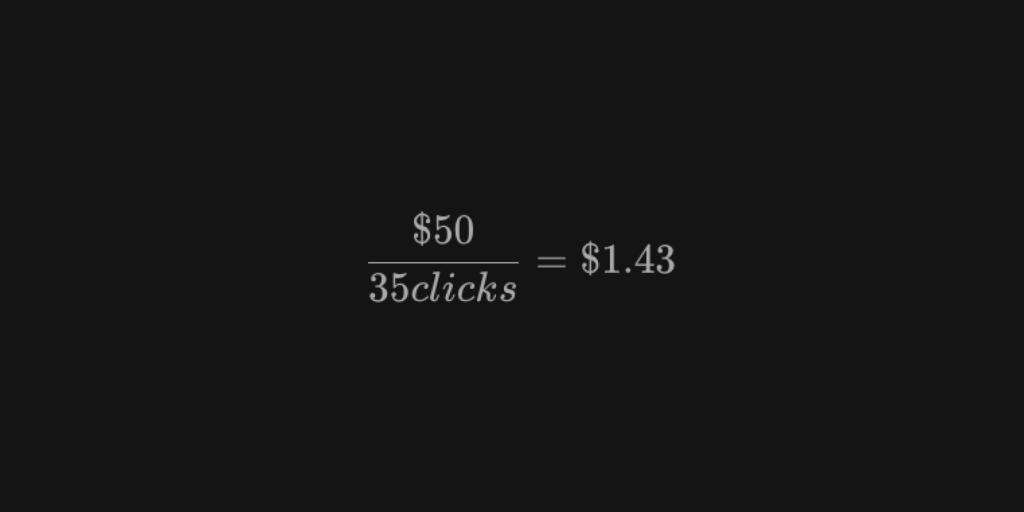
This means that I spent $1.43 for each click. With a bit of time optimizing my ad, I could probably get this down to less than a $1 per click. But how many of these clicks are becoming listeners?
Of the 35 people who clicked on my ad, only 5 bothered to listen to my podcast. I spent $50 and gained 5 listeners. So I spent $10 to acquire each listener (with no guarantee that they keep listening.)
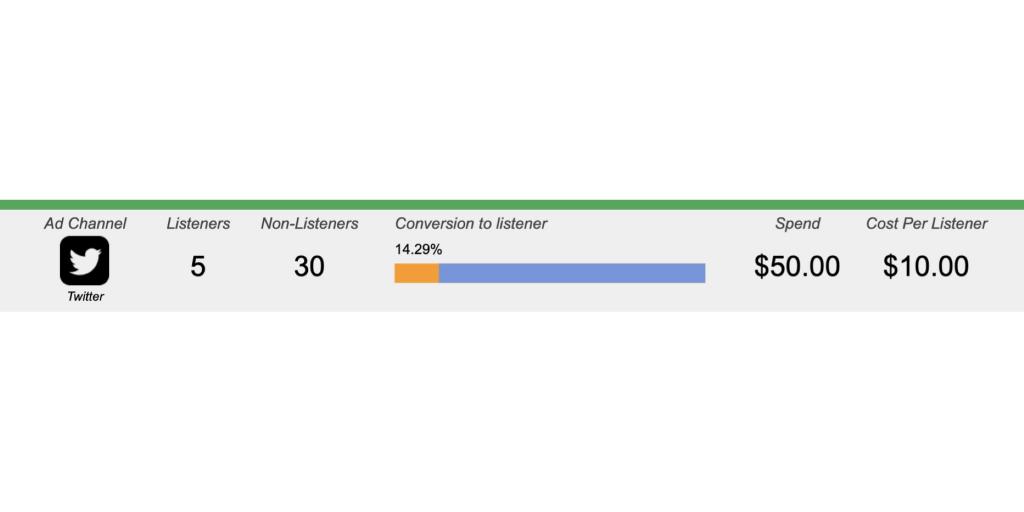
If it costs us $10 to acquire a single listener, it will cost us approximately $10,000 to acquire a thousand listeners.
Assuming a standard $25 CPM (cost per thousand) and no ad placement fees, we can expect to make $25 back every time we play an ad to this thousand listeners.
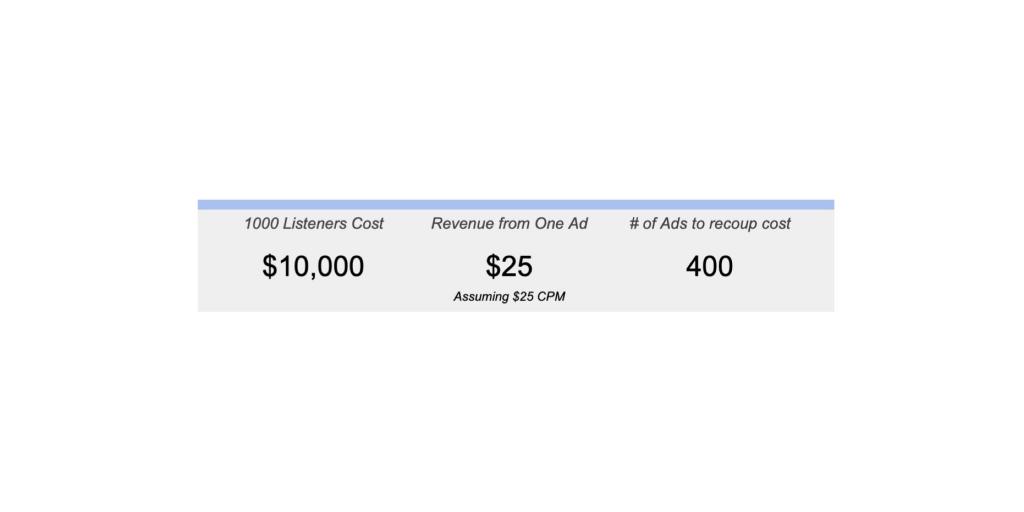
It will take 400 ad placements before we break even on this campaign. This is quite abysmal. Even factoring in other forms of crowdfunding, these numbers are a deal breaker for this particular experiment.
But this was just our first ad buy and I had much higher hopes for some Google Search ads I was running. I also wanted to see what might be possible with Facebook. Let’s start with the latter.
Our Facebook Campaign Results
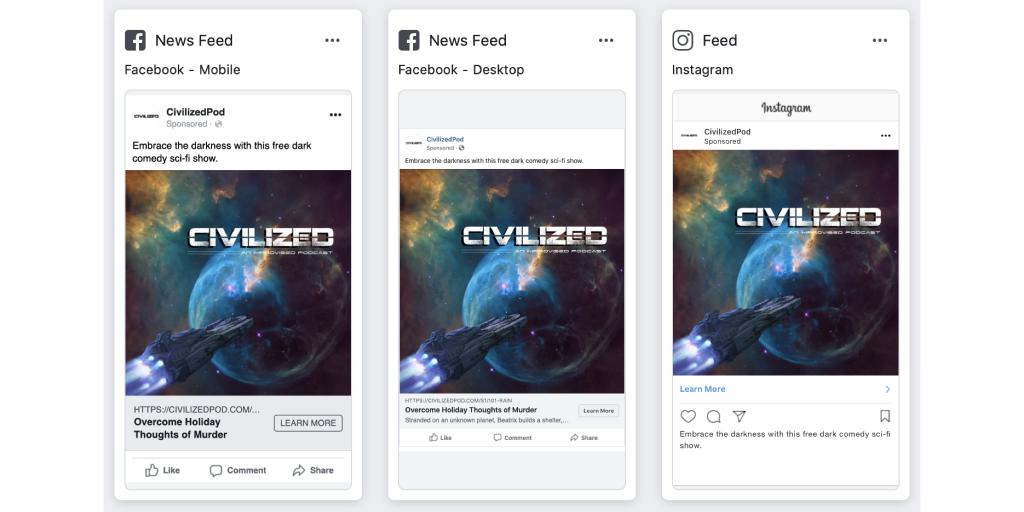
We started with a pretty standard ad built around our podcast cover art. As outlined earlier, some of these ads were driving to our Radiopublic podsite and others were using a Chartable SmartLink. Both of these allow us to measure listeners acquired.
Our audience targerting was US, 18+ and interests of Comedy, Sci-fi or Horror. We ran tests for different creative and also played with targeting people who like specific podcasts and even “Sci-Fi movies” to see what would give us the best performance.
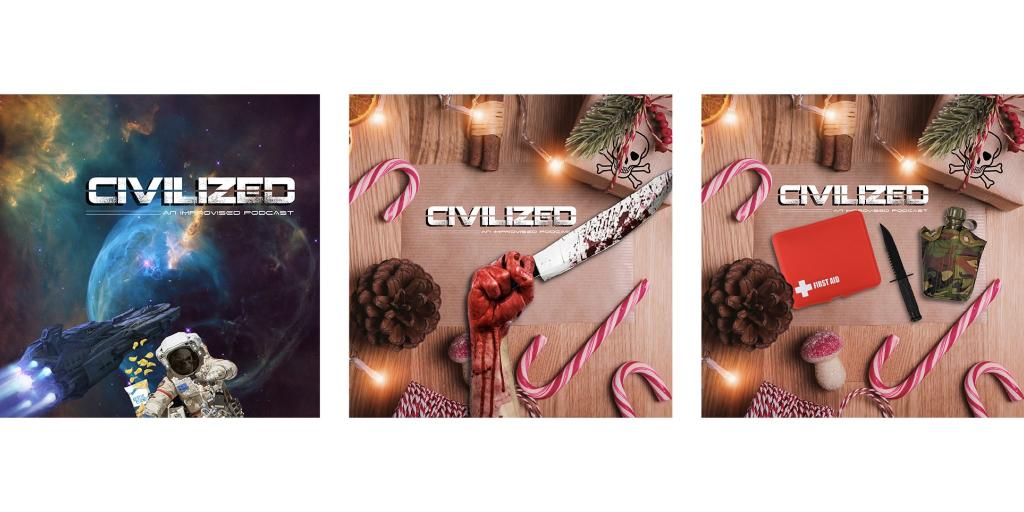
Above are just a few of the ad units we tested. Facebook refused our bloody hand image. In the end, our initial cover art was the top performer.
From a clicks for dollars spent, nothing we tested can touch Facebook. We spent just over $62 and we generated 368 clicks. This is an average of $0.17 a click.
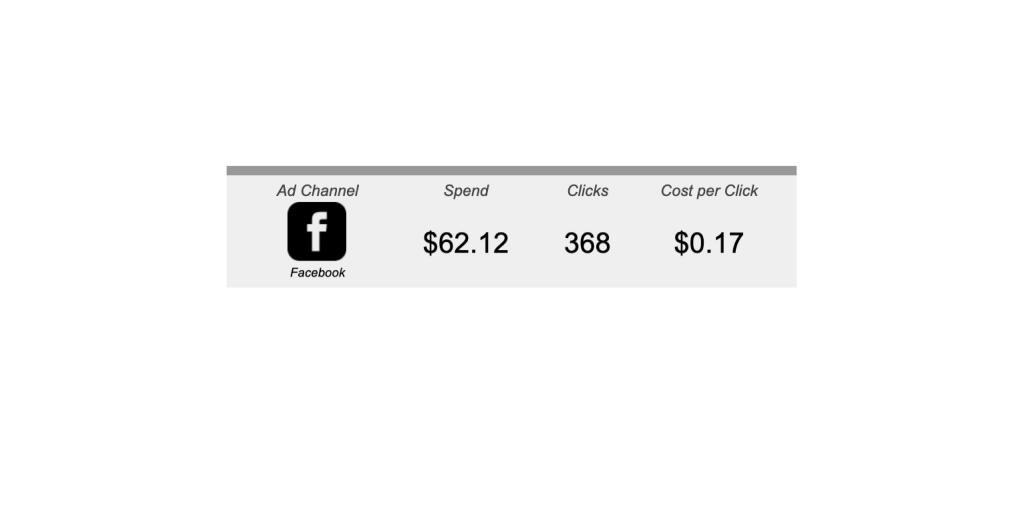
This is probably why Facebook is used by so many of the podcasters we spoke to. It looks too good to be true, because it is.
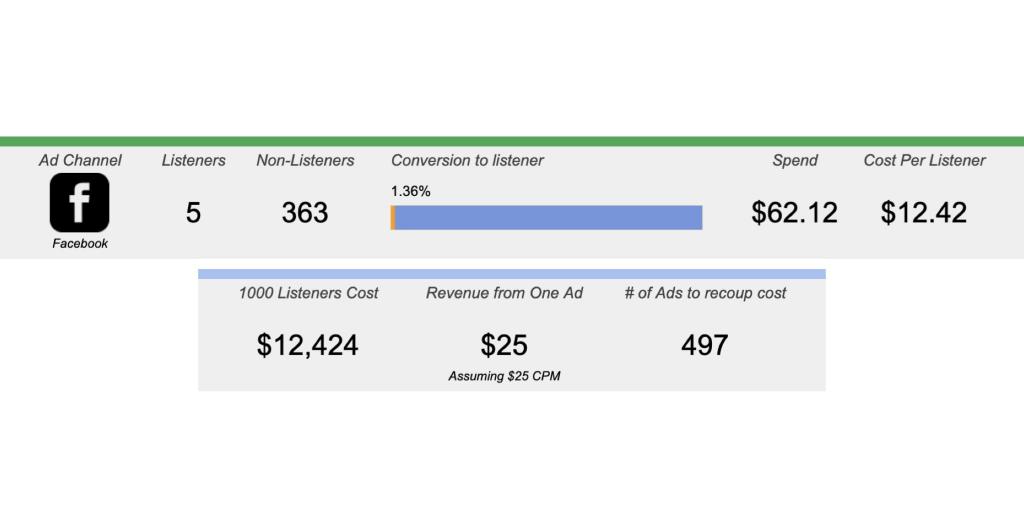
Facebook was the worst performing paid platform, according to these experiments, when it comes to generating listeners.
We paid $62.12 to generate 5 listeners which comes out to $12.42 per listener. I can’t even fathom who would be capable of paying over $12,400 for a thousand listeners, let alone trying to break even with 497 ad units.
Facebook touts a very low cost per click, the lowest in fact, but the conversion to listeners was less than 2%. All around, we give Facebook two thumbs down.
Our Google Search Campaign Results
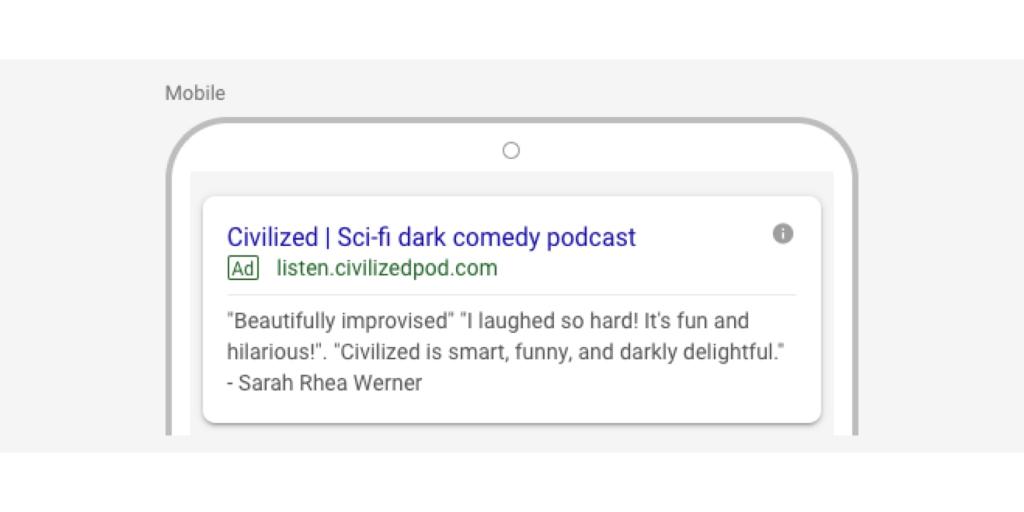
I ran a number of experiments with Google Search ads. In summary, we spent $332.87 to achieve 47 listeners. So our cost per listener was $7.08 each. Far from great, by any means, but I do like seeing a conversion to listener that is over 5%, but this is far below what we saw on Twitter with 14% of people who clicked becoming a listener.
Our Twitter ad was a video audiogram so peole got to hear up to 60 seconds of an episode. Could a Google Search ad that is just text even come close to a 14% conversion? Keep reading, because it can do far better than that.
I got a little carried away with this campaign and I’m not looking forward to my partner seeing what I ended up spending on this “experiment.” The things I do for data science and transparency!
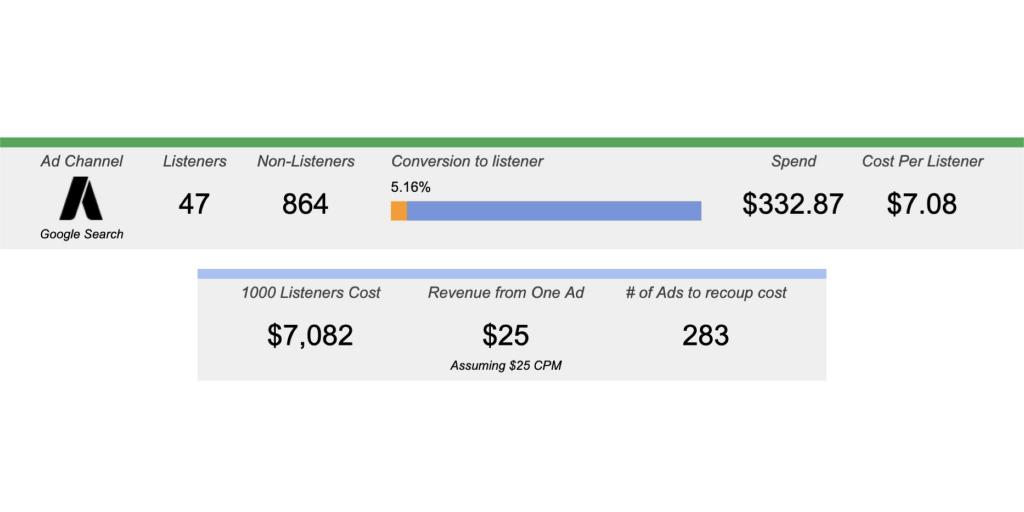
Included in the above was a test we ran in English speaking India where we had very little competition and were able to achieve a click through rate of over 2.5% and a cost per click of only $0.18. But the conversion to listeners wasn’t really there with only 3.5% of visitors to our podcast converting to a listener.
That said, it is more than possible to use Google Adwords to achieve a 25% conversion to listener.
Top Three Keywords and Ads for US audience
I took the top three performing keywords and created a “best-of” campaign. These three keywords were “sci-fi” podcasts, good podcasts, and top podcasts. We also restricted this buy to a US audience only.
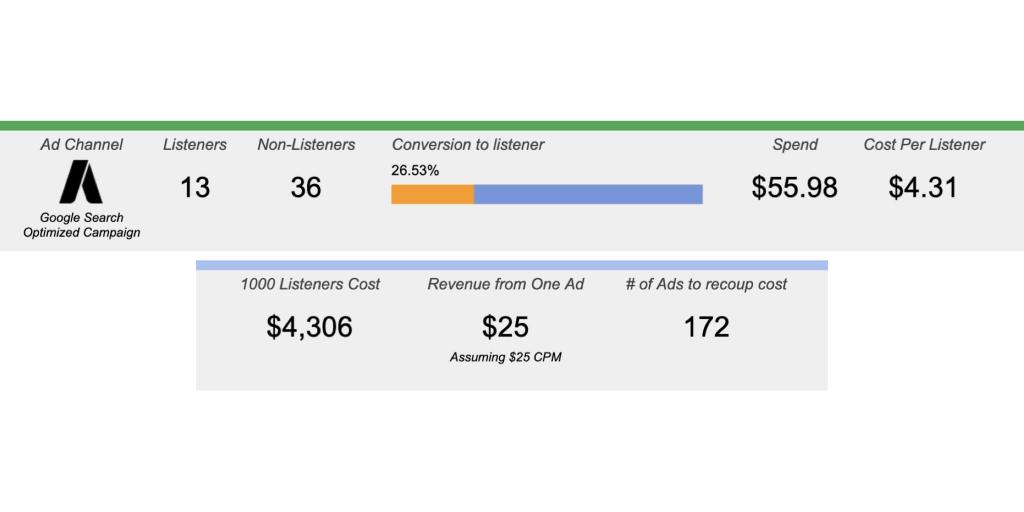
I was able to achieve a 26% conversion rate which is awesome but the competition for eyeballs was quite stiff so I ended up having to pay an averate cost per click of $1.14.
I expect that big producers, networks and hopeful podcasters are paying to boost newly launched shows in order to drive up their subscribers and position in the Apple charts, making these ads more costly to buy.
All of which results in a cost per listener of $4.31. And whilte this is the lowest we were able to achieve in all of our experiments, It’s hard to fathom the scenario where we could afford to pay $4,300 dollars for a thousand listeners.
Google Analytics geeks: we were pleasantly surprised to note a significant increase (1-2 points) in our Qual Scores when we shifted our ad units to point to our RadioPublic podsite.
The Ultimate Digital Ad Campaign (Thought Experiment)
What if we had access to one of the best Facebook ad buyers out there and we were able to achieve $.15 a click and then have 20% of these convert to a listener? These ads would be so perfect that they would resonate with EXACTLY the right audience and our chart would look like the following.
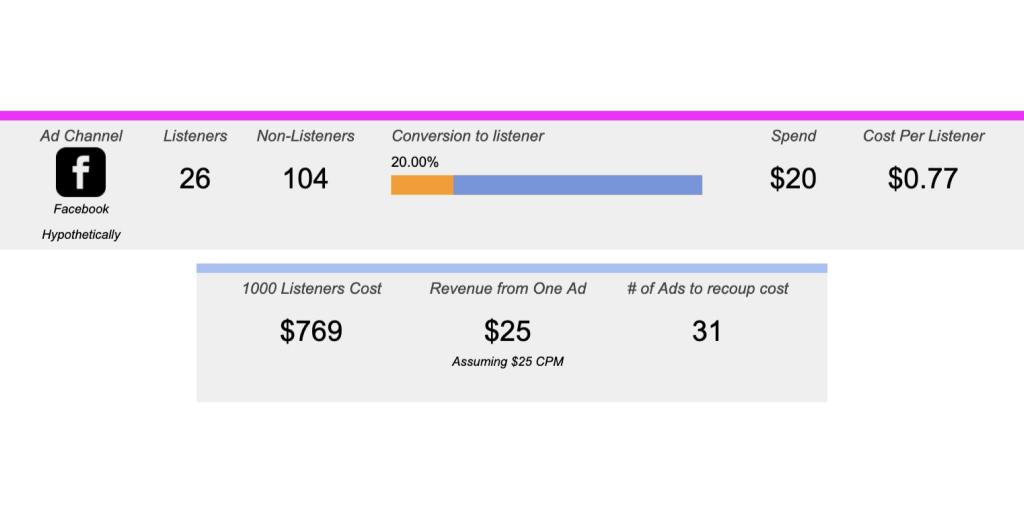
We would spend $20 to get 130 clicks and 26 of those people (20%) would click to listen to the episode (or subscribe). Would this make it worthwhile to advertise our podcast on Facebook?
Our cost per listener would now be less than $1, but it would still cost us $769 for a thousand listeners. Which we could recoup if we ran 31 ad units against this audience.
For most of us in the audio fiction space, this is likely not feasible as the number of ad units we have available in any one year is quite low. But I could see the argument for a daily or weekly talk show format to use a paid campaign like this to drive up their numbers.
I expect that this thought experiment will be difficult to recreate in the real world. It is far more likely that we will be paying well over a dollar per listener. So even an insanely successful digital ad campaign is not looking all that great for building podcast listenership.
So Wait, Is Advertising Good or Bad?
I wrote this series with the intent of getting more podcasters to embrace advertising, and my first experiments with purchasing social and search ads clearly suggest that these are not a good use of anyone’s dollars or time. The irony is not lost on me.
Data is important and sometimes it tells us things we don’t want to hear. So while paid digital advertising may be a bad choice, I remain convinced that other forms of advertising are an important part of building a brand and growing our audience.
More
In part three of this series, we explore promo trades and episode drops. Most of the successful podcasters we spoke to listed these two tactics as the most effective ways they had found to expand their listenership.

































































































